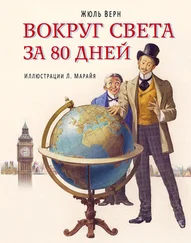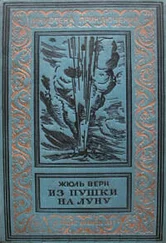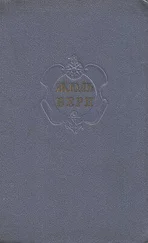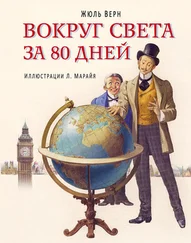At noon the Parsee gave the signal of departure. The travelers several times saw bands of ferocious Indians. The Parsee avoided them as much as possible. But what will Mr. Fogg do with the elephant when he gets to Allahabad? Will he carry it on with him? Impossible! The cost will be very expensive. Will he sell it, or set it free?
The night was cold. The Parsee lit a fire in the bungalow with a few dry branches. The warmth was very grateful. The travelers ate their supper ravenously.
At six o’clock in the morning they woke up. The guide hoped to reach Allahabad by evening. The guide avoided inhabited places. Allahabad was now only twelve miles to the north-east. They stopped under a clump of bananas, the fruit of which was as healthy as bread and as succulent as cream.
At two o’clock the guide entered a thick forest. The elephant suddenly stopped. It was then four o’clock.
“What’s the matter?” asked Sir Francis.
“I don’t know, officer,” replied the Parsee.
He listened attentively to a murmur which came through the thick branches. The murmur soon became more distinct. It now seemed like a distant concert of human voices with brass instruments. Mr. Fogg patiently waited without a word. The Parsee jumped to the ground, fastened the elephant to a tree. He soon returned:
“A procession of Brahmins is coming this way. We must go aside, if possible.”
The guide unloosed the elephant and led him into the wood. The discordant tones of the voices and instruments drew nearer, and the songs mingled with the sound of the tambourines and cymbals. The head of the procession soon appeared beneath the trees, a hundred paces away. The strange figures who performed the religious ceremony were among the branches. First came the priests, in long robes, with mitres on their heads. Men, women, and children surrounded them. They sang a lugubrious psalm and played tambourines and cymbals. Behind them there was a car [67] car – колесница
with large wheels. The spokes of the car represented serpents. Upon the car, stood a hideous statue with four arms, red body, haggard eyes, dishevelled hair, and protruding tongue.
Sir Francis recognised the statue and whispered,
“The goddess Kali; the goddess of love and death.”
“Of death, perhaps,” muttered Passepartout, “but of love-that ugly old hag? Never!”
A group of old fakirs made a wild ado round the statue. Some Brahmins led a woman who faltered at every step. This woman was young, and as fair as a European. Her head and neck, shoulders, ears, arms, hands, and toes were loaded down with jewels and gems with bracelets, earrings, and rings. She had a light muslin robe on.
The guards who followed the young woman were bearing a corpse on a palanquin. It was the body of an old man. Next came the musicians. Sir Francis watched the procession with a sad countenance, and said,
“A suttee [68] suttee – сати (похоронная ритуальная традиция в индуизме, в соответствии с которой вдова подлежит сожжению вместе с покойным супругом на специально сооружённом погребальном костре).
.”
The Parsee nodded, and put his finger to his lips. The procession slowly wound under the trees, and soon its last ranks disappeared in the depths of the wood. The songs gradually died away. Phileas Fogg asked:
“What is a suttee?”
“A suttee,” returned the general, “is a human sacrifice, but a voluntary one. This woman will be burned tomorrow at the dawn of day.”
“Oh, the scoundrels!” cried Passepartout.
“And the corpse?” asked Mr. Fogg.
“It is the prince, her husband,” said the guide; “an independent rajah of Bundelcund [69] Bundelcund – Бунделкханд
.”
“Is it possible,” resumed Phileas Fogg, “that these barbarous customs still exist in India, and that the English are unable to stop them?”
“These sacrifices do not occur in the larger portion of India,” replied Sir Francis; “but we have no power over these savage territories, and especially here in Bundelcund.”
“The poor wretch!” exclaimed Passepartout, “they will burn her alive!”
“Yes,” returned Sir Francis, “alive. And the sacrifice that will take place tomorrow at dawn is not a voluntary one.”
“How do you know?”
“Everybody knows about this affair in Bundelcund.”
“But the wretched creature did not resist,” observed Sir Francis.
“That was because they intoxicated her with fumes of hemp and opium.”
“But where are they taking her?”
“To the pagoda of Pillaji [70] Pillaji – Пилладжи
, two miles from here; she will pass the night there.”
“And the sacrifice will take place…”
“Tomorrow, at the first light of dawn.”
The guide wanted to urge Kiouni forward with a peculiar whistle. But Mr. Fogg stopped him, and turned to Sir Francis Cromarty,
“Let’s save this woman.”
“Save the woman, Mr. Fogg!”
“I have twelve hours; I can devote them to that.”
“Why, you are a man of heart!”
“Sometimes,” replied Phileas Fogg, quietly; “when I have the time.”
The project was bold, full of difficulty, perhaps impracticable. Mr. Fogg was going to risk life, or at least liberty, and therefore the success of his tour. As for Passepartout, his master’s idea charmed him; he began to love Phileas Fogg.
“Officers,” said the guide, “I am a Parsee, and this woman is a Parsee. Command me as you will.”
“Excellent!” said Mr. Fogg.
“However,” resumed the guide, “it is certain, not only that we shall risk our lives, but horrible tortures.”
“That is clear,” replied Mr. Fogg. “I think we must wait till night.”
“I think so,” said the guide.
The victim, said the Indian, was the daughter of a wealthy Bombay merchant. She received a good English education in that city. Her name was Aouda [71] Aouda – Ауда
. She was married against her will to the old rajah of Bundelcund. She escaped, they caught her and brought to the rajah’s relatives, who wanted her death.
What did the travelers decide? The guide will direct the elephant towards the pagoda of Pillaji. They halted, half an hour afterwards, in a coppice, five hundred feet from the pagoda. They were well concealed; but they heard the groans and cries of the fakirs distinctly.
The guide was familiar with the pagoda of Pillaji, in which the young woman was imprisoned. The abduction will happen that night. As soon as night fell, about six o’clock, they decided to make a reconnaissance around the pagoda. The cries of the fakirs ceased; the Indians were drunk. They drank liquid opium with hemp.
The Parsee led the travelers. They noiselessly crept through the wood, and in ten minutes they found themselves on the banks of a small stream, whence they perceived a pyre of wood. On the top of it lay the embalmed body of the rajah. The Indians wanted to burn him with his wife. The pagoda stood a hundred steps away.
“Come!” whispered the guide.
Soon the Parsee stopped on the borders of the glade. The ground was covered by groups of the motionless Indians. Men, women, and children lay together. Among the trees, the pagoda of Pillaji loomed distinctly. The Parsee led his companions back again. They lay down at the foot of a tree and waited.
The time seemed long, the guards watched steadily by the glare of the torches, and a dim light crept through the windows of the pagoda. They waited till midnight; but no change took place among the guards.
Читать дальше












